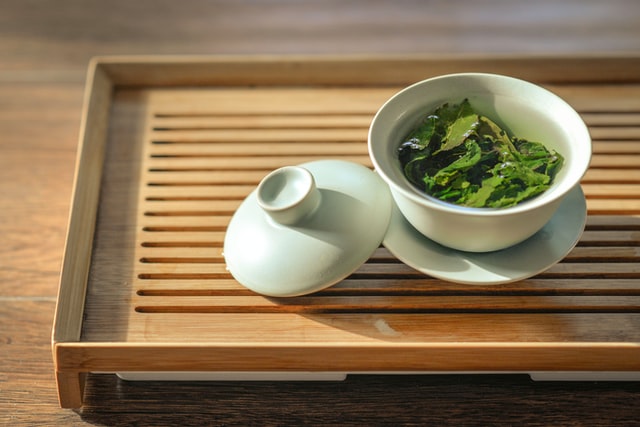Introduction
The common cold has been coined as one of the most annoying illnesses to have. The symptoms can last anywhere from a few days to weeks, and it could leave you feeling miserable and tired.
There are supplements that have key antiviral compounds; they are known to help suppress and shorten the duration of your cold/flu infections when you start taking supplements at the first symptoms.
Viruses are small organisms that invade cells in our bodies and cause an infection. They travel through air and enter the body when we inhale or touch something contaminated by it.
Couple that fact with our constant state of stress... Stress can weaken the immune system's response to invading foreign substances like viruses, bacteria, parasites, and fungi. Stress also decreases the body's ability to produce infection-fighting cells called T-cells.
Immune cells (T cells) are a vital component of our bodies' protection from viruses and illnesses. This article goes over 10 Antiviral supplements that are recognized for their immunomodulatory properties.
To combat illness, you must first strengthen your immune system. Healthy diet is key! Eating nutritious meals and getting adequate sleep are two good ways to boost immunity. It's been demonstrated that taking nutritional supplements is also one way to fight off viruses.

Antiviral supplements fight off viruses and boost immunity
Many herbs have demonstrated the ability to strengthen immune cells from within, thus making the body better prepared for fighting viruses and preventing disease in the first place.
While supplements are not the same as healthy foods, they can still improve your immunity. Here are my favourite supplements that work in unique ways to keep immune cells functioning normally and protect against viruses.
But first, let's talk about our immune system and immune function as a whole. Here's one of the most common questions people ask:
Is getting a cold really bad for your immune system?
Don't worry! Your immune system is designed to protect you against the many bugs and viruses that we expose ourselves to through air, food and fluids every day. In fact, you can think of getting sick as training to maintain a healthy immune system - kinda like you going to the gym.
The average person's immune system will be battling invading microorganisms from sunup to sundown. The body does a pretty good job of making billions of dead cells every day and its own weaponry in the form of antibodies to defend itself.
However, you should know that cold depletes our immune system by suppressing immune cells in the lungs that prevent colds and other respiratory viruses from being spread to others. This type of virus exposure may be one reason why some people tend to get more colds than others.
Of course, it does not help if you cannot get enough sleep and are constantly stressed out.

What about cold temperatures and respiratory tract infections?
Cold temperatures cause the blood vessels to constrict which lessens your body's ability to fight off disease. One reason why upper respiratory tract infections are more common in winter.
This is because many respiratory viruses first enter the body through moist mucous membranes in the nose, mouth and throat.
When you breathe cold air through your nose and mouth, it triggers an immune response in which the cilia in your nose quickly removes foreign invaders. This causes inflammation that makes the area congested for a short time.
But when we breathe colder, dryer air this process slows down and allows more time for viruses to invade our cells making colds/flu seasons worse.
Moreover having fewer daylight hours also contributes to reduced immunity since exposing skin to sunlight increases vitamin D production which can help promote better immunity.
The common cold virus prefers temperatures between 86°F- 92°F (30°C - 33°C) whereas healthy body temperature ranges between 97°F- 99°F (36.1°C - 37.2°C).
So the next time you feel a cold coming on, try to increase your vitamin D by spending more time in the sun or supplements and avoid exposure to frigid temperatures.

Food and your immune system
It is a well-known fact that you can strengthen your immune system by eating fresh fruits and vegetables. What many people don't know, is that winter months from November to March are the most difficult for our immune systems based on what we discussed above.
The best thing you can do during these colds months is to eat foods rich in vitamins C and D like oranges, broccoli, and grapefruit.
Then there are turmeric and ginger. Turmeric is a root that is high in antioxidants (anti-inflammatories), which means it can help fight inflammation in your body - even when you're not sick. Ginger has been shown to relieve nausea and fight off certain bacteria and viruses.
In general, I always go back to the simple fact that a balanced diet rich in non-processed, organic products are always best!

Dietary Supplement(s)
- For supplements, Vitamin C has been found to reduce the length of the common cold by 8%. It helps strengthen immune health. This includes strengthening white blood cells that protect against infection, stimulating antibody production and promoting cytokine release which helps with inflammation.
- Vitamin D supplements have been found to protect against colds, flu and other viruses. A study revealed that people who had adequate blood levels of vitamin D were 62% less likely to contract upper respiratory infections.
- Probiotics supplements have been shown to strengthen the immune response in children with reduced immunity and significantly reduce the rate of getting a cold or flu.
- Zinc supplements have been found to shorten the time it takes for symptoms of a common cold to show up by as much as 50%.
- Garlic supplements have also been shown to reduce cell damage and increase white blood cells that fight infection.
Let's dive deeper into the 10 most amazing immune boosters vitamins, supplements and herbs.

1. Boost immunity with Vitamin C
Vitamin C shortens the duration of common colds by 8 hours to a few days. One study found that people who took supplements during the winter cold season, starting in November and continuing through March, had 22% fewer sick days overall than those who didn't take supplements.
Another observation found that vitamin C supplementation might reduce the risk of getting a cold when taken daily for about 2 months (October through mid-January).
In addition, vitamin C supplements provide protection from free radical damage that can contribute to chronic illnesses like heart disease and cancer.
The best forms of vitamin c are derived from acerola or rose hips extracts since they are better absorbed by the body.
Foods high in Vitamin C: oranges, grapefruits, kiwi, strawberries, blackcurrants, broccoli, kale and tomatoes (the latter has significantly less vitamin c than other foods).
2. Vitamin D and your immune function
Adequate vitamin D levels might protect against colds, flu and other viruses. A study revealed that people who had adequate blood levels of vitamin D were 62% less likely to contract upper respiratory infections such as a cold or the flu.
Another study found that athletes receiving vitamin D supplements had fewer colds and infections than those taking a placebo. This is likely due to the fact that Vitamin D improves immune function, which in turn has anti-inflammatory effects for your respiratory system.
Here's another blog post about the importance of Vitamin D to the overall healthy lifestyle.
3. Power up the immune system with Quercetin
Quercetin is an antioxidant found in plants. Supplements that contain quercetin have been studied and shown to reduce markers of inflammation.
It reduces symptoms of allergies and alleviates the severity of asthma attacks. It has also been found to help prevent bronchitis, stomach ulcers, and herpes virus infections.
In most studies, supplements containing quercetin have been shown to help reduce the severity and frequency of colds. Quercetin supplements may also be helpful in reducing sinus infections by helping your body fight off viruses that cause them and bolster immune health.
Sources of Quercetin: onions, apples (especially red), leafy green vegetables (specifically kale), green tea, cranberries and cocoa (dark chocolate).

4. Green Tea Extract enhances immune response
Traditional Chinese Medicine (TCM) includes green tea extract alongside ginger. Green tea supplements contain catechins and theanine, which may activate the immune system to help fight off seasonal flu.
In a study on rats, supplements containing green tea extract reduces fever and illness when given before infection with a virus or bacteria.
Interestingly enough, supplements containing green tea extract delayed symptom severity (the length of time it took for an infection with a virus or bacteria to start making you feel unwell) and have been shown in animal studies to speed up recovery rates from viral infections.
Sources of Green Tea Extract: supplements, green tea.

5. Reduce symptoms with Elderberry Extract
Elderberry is a dark-coloured fruit from a shrub that grows in the hedgerows, woods and on scrubland.
The berries can be harvested to make Elderberry syrup which can be used for flu symptoms because it contains flavonoids which are antioxidants that may help reduce fever and inflammation.
Historically, elderberry was crossed with plants like mulberry to create new varieties of vines. It has also been found that supplements containing elderberries have antihistamine actions similar to over-the-counter allergy medications without the side effects such as drowsiness or stomach upset most people experience when taking them.
Elderberry supplements also contain vitamins A, B and C so they're an all-around good supplement choice for your immune health.
Sources of Elderberry Extract: supplements, purple fruits (such as blueberries and blackberries).
Elderberry supplements are the most researched of all supplements that fight colds.
Elderberry supplements have been shown to be effective against influenza virus, respiratory syncytial virus (RSV), and HSV I & II.
In one study on 190 people who had been exposed to a cold virus and were thus likely to get a cold, supplements containing elderberry extract reduced the incidence of illness from 40% to 5%.
The supplements also shortened the duration of symptoms by about 4 days.
6. Immune enhancing properties of Probiotics
Probiotics is a term used to describe supplements that contain beneficial bacteria, yeasts and other microbes. This particular group of supplements has been shown to be essential in fighting colds among a host of other beneficial attributes.
A new study found that an 8-ounce bottle containing 126 billion live cultures helped reduce sick days in adults exposed to children who were suffering from colds. In just two weeks of drinking this probiotic drink, the average sick days that people took in the study decreased from six to two.
Probiotics have immune-enhancing and anti-inflammatory properties. The most convincing evidence of probiotics' beneficial effects on health has been shown for prevention or improvement of upper respiratory virus infections and associated cold symptoms, through laboratory studies documenting the involvement of leucocytes, epithelial cells, gut microbiota in the respiratory tract infections.

7. Immune health with Echinacea
Arguably the best-known natural treatment for fighting off viruses, Echinacea supplements have been linked to a number of benefits. While there is no definitive answer about how well they work in humans, more than 50 studies have been done on animals and most have shown positive results.
One study found that people who took echinacea supplements were able to reduce their number of sick days because of colds by 1.4 days, compared with those who did not take supplements. Some studies have shown that taking supplements may reduce the severity of some respiratory infections, such as bronchitis and pneumonia.
8. Prevent disease with Zinc
Zinc supplements can significantly reduce the effect of a cold.
In one study, people who took zinc supplements were able to reduce their number of sick days because of colds from 6 to 2 days, compared with those who did not take supplements. Some studies have shown that taking supplements may reduce the severity of some infections, such as bronchitis and pneumonia.
Sources of zinc: supplements, meats and fish.
9. Adaptogens that aid immune health
Adaptogens are dietary supplements that help the body adapt to stress.
Adaptogens can be useful for a number of reasons, from preventing colds and reducing the severity of respiratory infections to improving athletic performance and mental clarity.
Adaptogenic supplements come in many forms, including herbs, roots, mushrooms, lichens and tonics. Many people take them as tea or tablets while others prefer capsules or powders.
Some of the supplements that can act as adaptogens include astragalus, Asian ginseng, cordyceps, eleuthero root, holy basil and reishi mushrooms.
10. Antiviral effects of N-Acetyl Cysteine (NAC)
N-Acetyl Cysteine is a supplement that can help prevent colds. It does this by making it more difficult for the virus to attach to the cells in your nose and throat and cause you to get sick.
N-Acetyl Cysteine has been called an "antiviral supplement" because supplements that help prevent colds can also act against other viruses.
In the study "N-acetylcysteine inhibits replication of SARS coronavirus." The researchers concluded from their work that N-acetyl cysteine supplements can help prevent the SARS coronavirus from replicating in cells. They describe N-acetyl cysteine supplements as an "antiviral compound."
N-Acetyl Cysteine supplements are available in powder, capsule, and tablet form. A dosage of 200 milligrams to 500 milligrams per day (200 mg to 500 mg per day) is usually recommended to help the immune system. One study found positive effects from supplements given at 600 milligrams per day. The cost of N-acetyl cysteine supplements is relatively low, making supplements a very reasonable choice to boost your immune system and help prevent colds.
NAC supplements may also help to reduce the severity of symptoms if you do get a cold.

In conclusion TL;DR
With winter around the corner and temperatures dropping, we’ll all be feeling a little more susceptible to illness.
Whether you’re trying to prevent or reduce the severity of respiratory infections caused by viruses such as colds, flu, bronchitis and pneumonia; supplements can help!
Here are some of our favourite supplements that have been shown in studies to boost immunity:
- Zinc (which can significantly reduce the effect of a cold),
- N-acetyl Cysteine supplements (helpful for preventing virus replication) and
- Adaptogens like leucocytes, epithelial cells and gut microbiota which aid immune health
- Vitamins C & D
- Elderberry
If you want first-hand advice on how these supplements work best or if you simply need help implementing them into your everyday routine, contact me for a personalized consultation.

 Is ginger essential?
Is ginger essential?  What do honey and garlic have in common?
What do honey and garlic have in common?  Are all vitamins C created equal?
Are all vitamins C created equal?  Why is the sound of waves healing?
Why is the sound of waves healing?  Do babies react to fizzy water?
Do babies react to fizzy water?